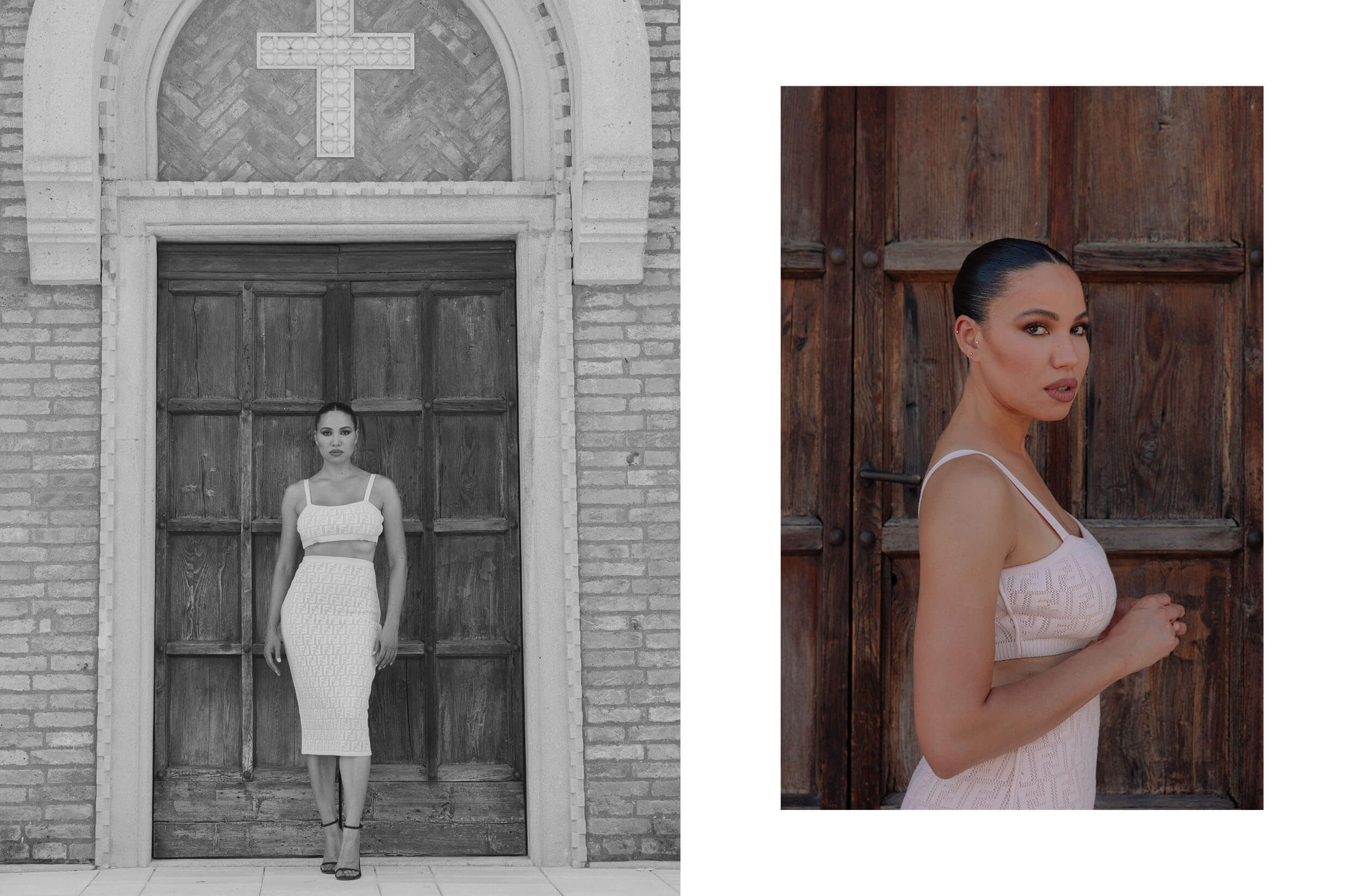Jurnee Smollett‘s journey as an actress has been a testament to her dedication, talent, and the profound and “dangerous” roles she chooses to embody. In her latest film, “The Order”, which premiered at this year’s Venice Film Festival, Jurnee continues to challenge herself, stepping into a deeply resonant and dark chapter of American history. The film tackles the heavy topics of domestic terrorism and white supremacy, themes that require emotional depth and a nuanced understanding of the complexities of human nature and society.
Ours was an inspiring chat, where Jurnee reflected on her experience preparing for the role, her approach to inhabiting characters with such intensity, and her personal connection to the themes of the film. Other than that, she’s offered a glimpse into her thoughtful process, driven by her commitment to telling stories that reflect the world around us, while also confronting the darker corners of human experience.
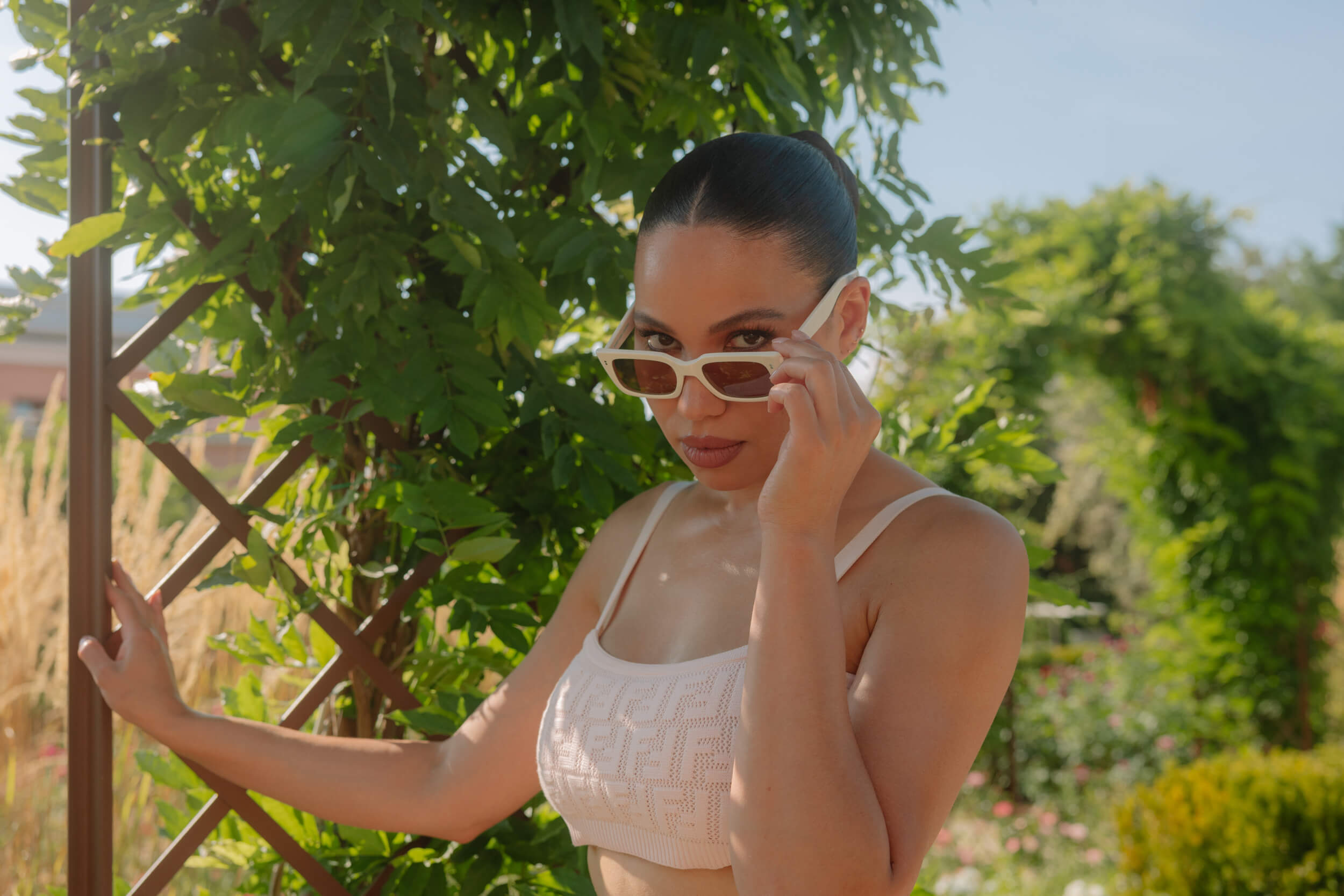
What’s your first cinema memory?
My family and I were huge “I Love Lucy” fans, an iconic show from the 1950s in black and white. Lucille Ball had a huge impact on my craft because I watched it so much! [laughs]
Her film with Gene Kelly, “Du Barry Was A Lady” was a film from one of my earliest memories. I haven’t seen it in forever so not sure how it holds up now, but I remember being so drawn to the music, dancing, the costumes, the technicolor cinematography. On the other hand, I think my earliest memory of seeing a film in a cinema is Spike Lee’s classic “Malcolm X”.
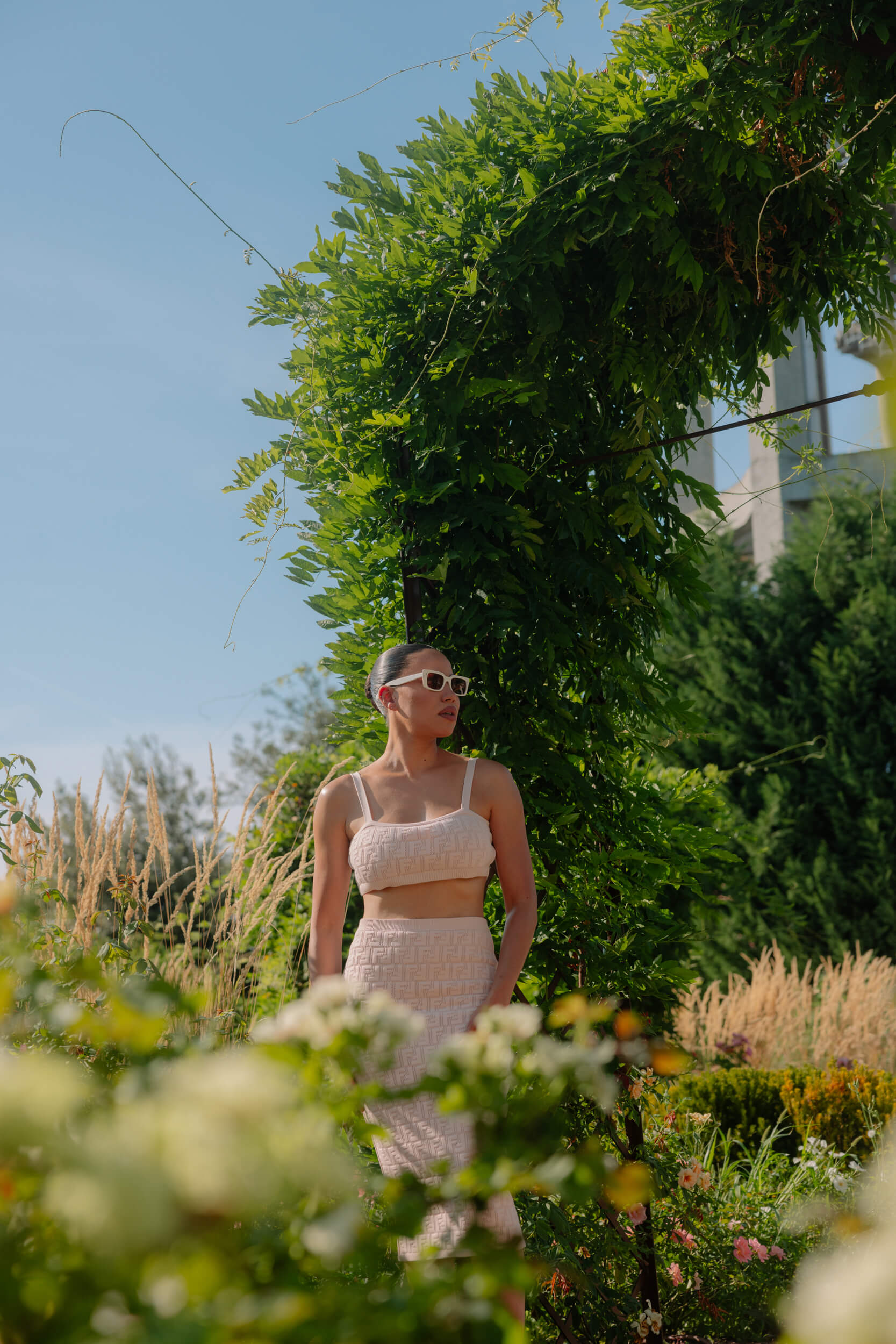
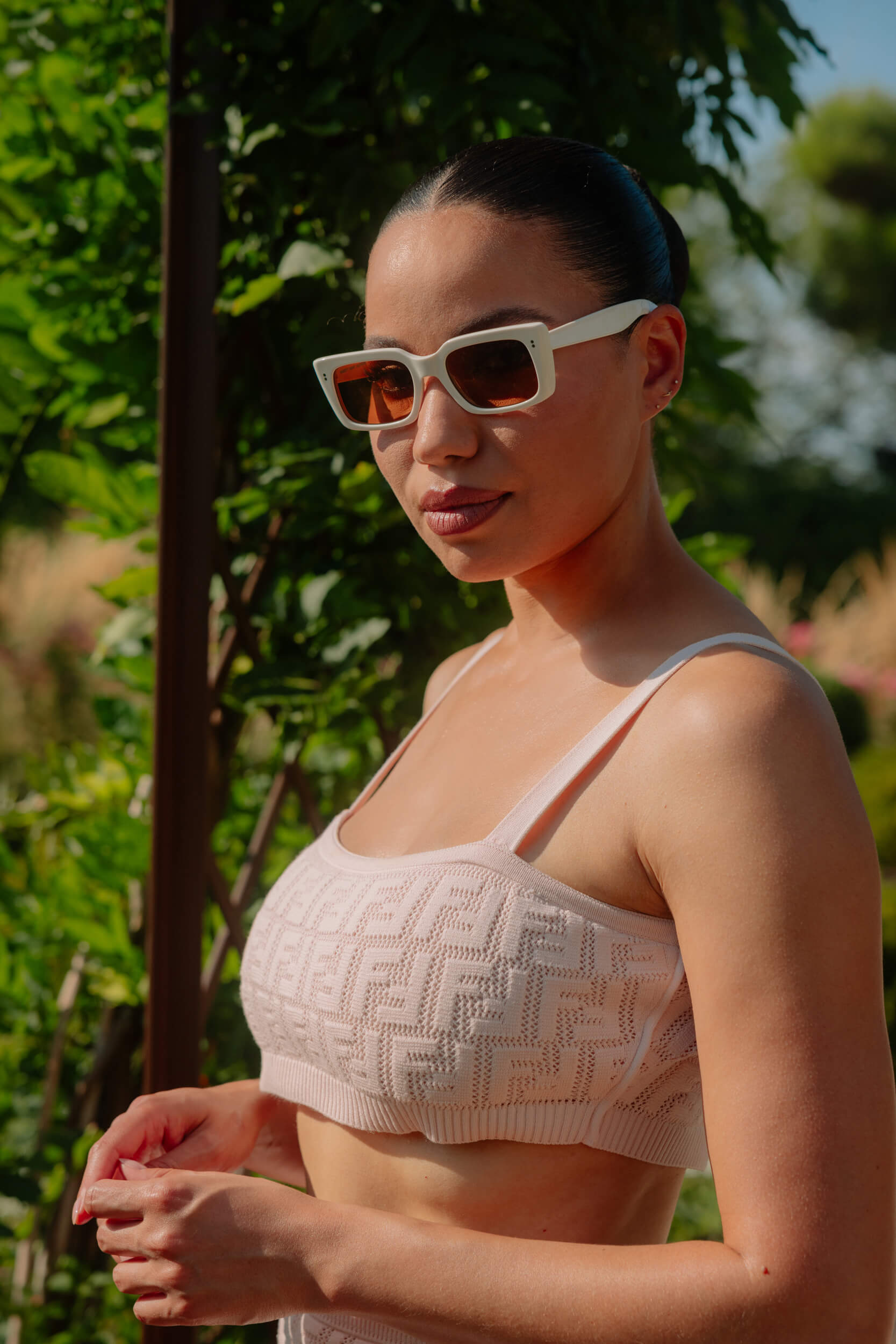
“The Order” tackles a heavy subject – domestic terrorism and white supremacy. What was the most challenging aspect of engaging with this piece of American history, and how did you navigate the emotional weight of these themes?
That’s a great question. The biggest challenge was going back and doing a lot of research. The movie is based on a book called “The Silent Brotherhood” and reading that book, in addition to having to research elements of that period within our nation and having to research elements that my character would have researched like white supremacy and the Aryan Nation and this group that splintered off from the Aryan Nation called The Order. What was for sure the biggest challenge in doing this film was having to go to that dark place.
I sit at the intersection of multiple identities – my mother is African-American, from New Orleans, and my dad was a Jewish man from Queens, New York, Ashkenazi is his lineage; so, as a woman of color, a black woman growing up in America, these racist ideologies aren’t foreign to me. My mom was very intentional in educating us about our history and the very complex history of our nation, so it’s really ugly to see the level of bigotry that some folks throughout our history have subscribed to.
It’s not anything new, unfortunately, it’s existed in our nation since it was founded.
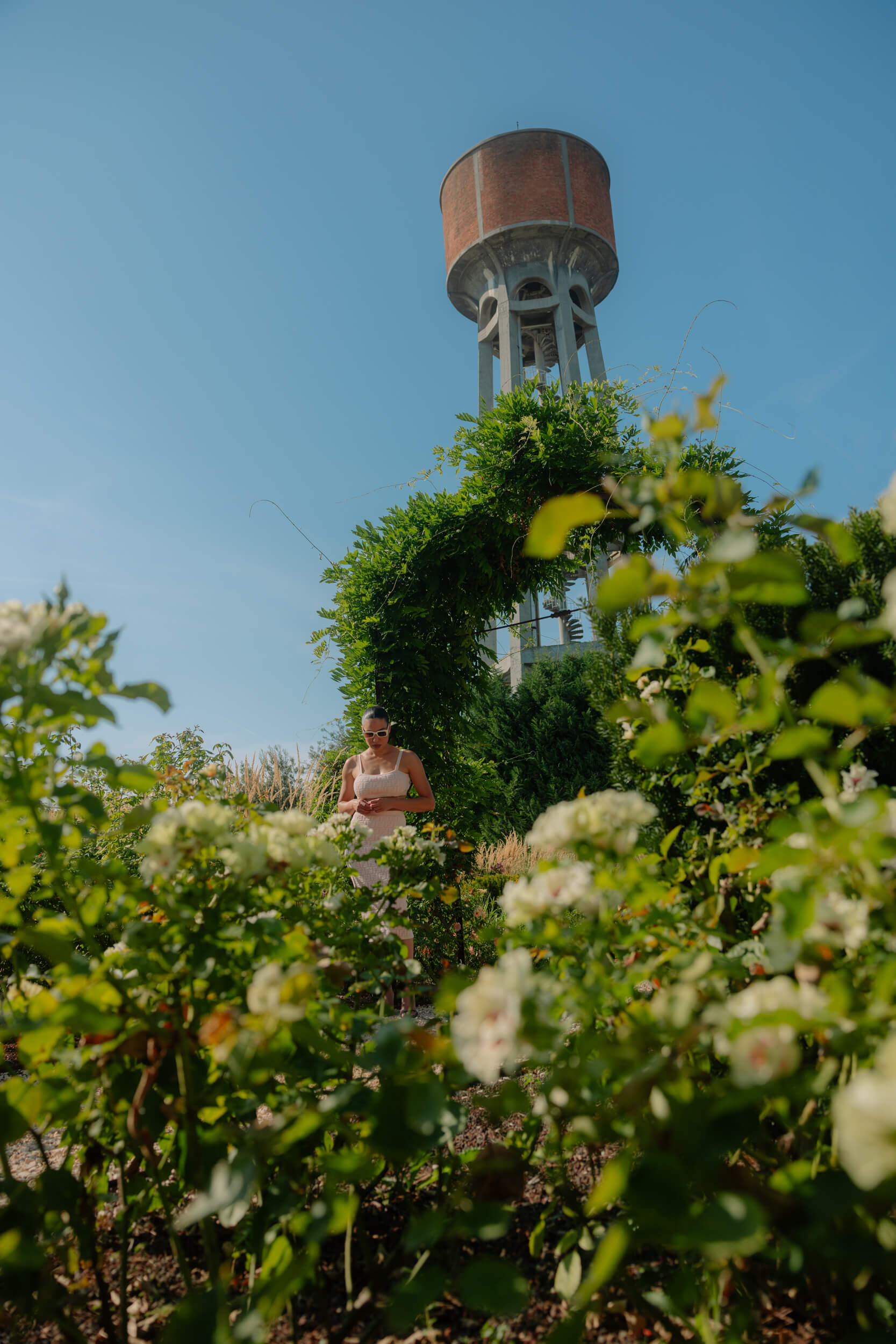
“What was for sure the biggest challenge in doing this film was having to go to that dark place.”
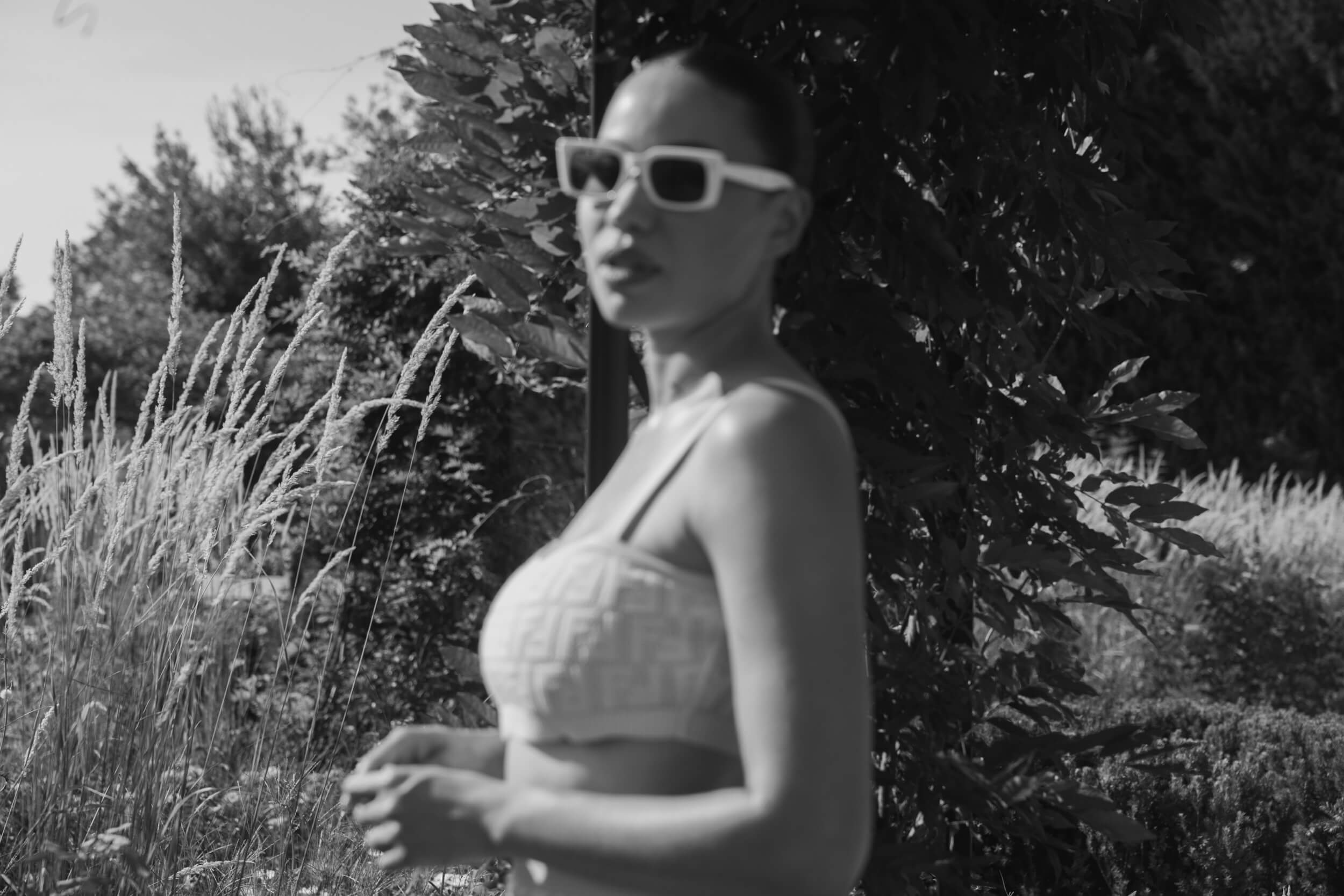
Yeah, that’s what’s sad, that it sounds so current, that even now some things do ring a bell.
You’re right! It’s unfortunate that we’re doing a film that’s coming out in 2024 and it’s so relevant for now, and it could have been done at any time throughout our history and it would have been relevant because this level of bigotry is a plague – it’s a disease that our nation is still ill from and that we have yet to fully heal from.
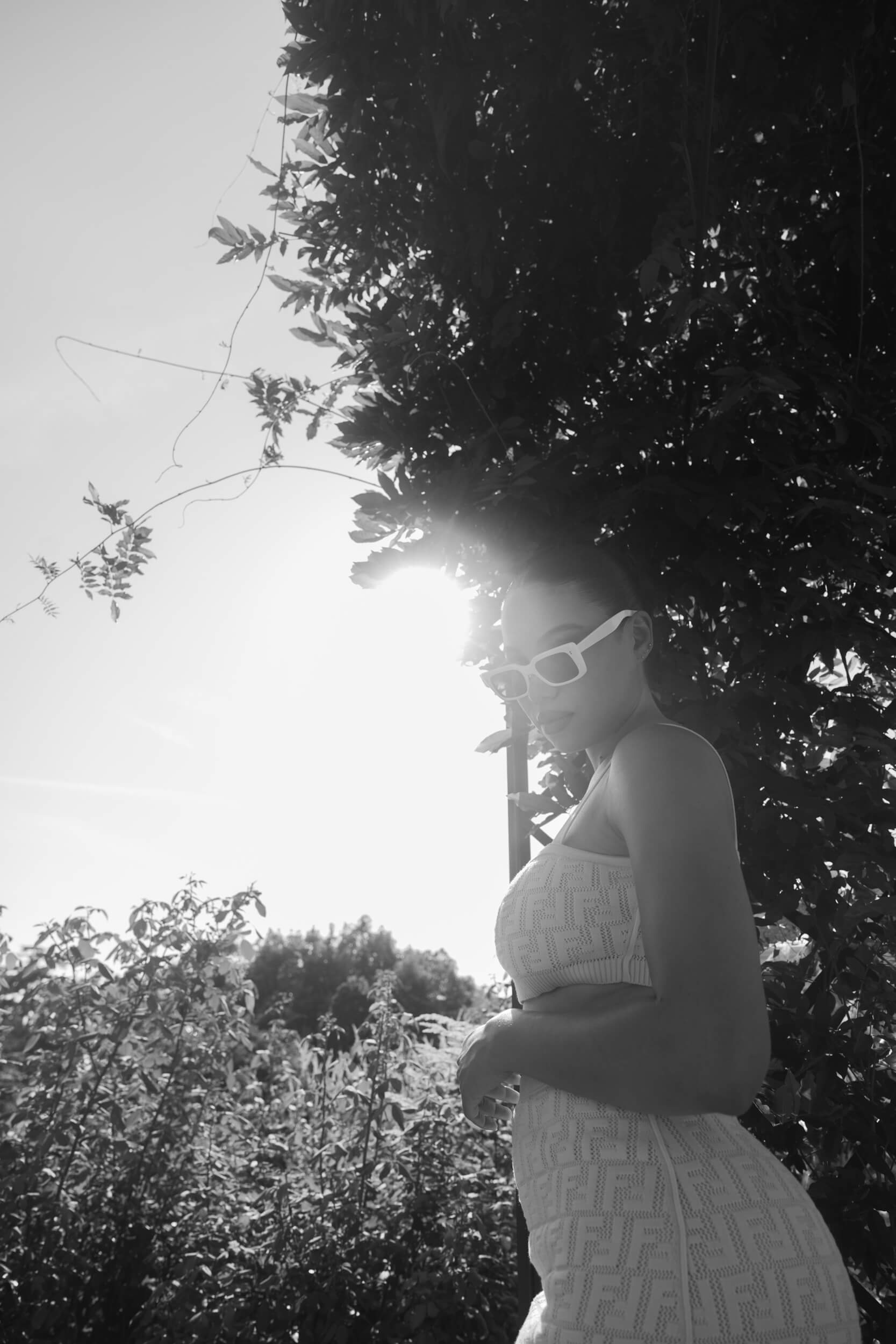
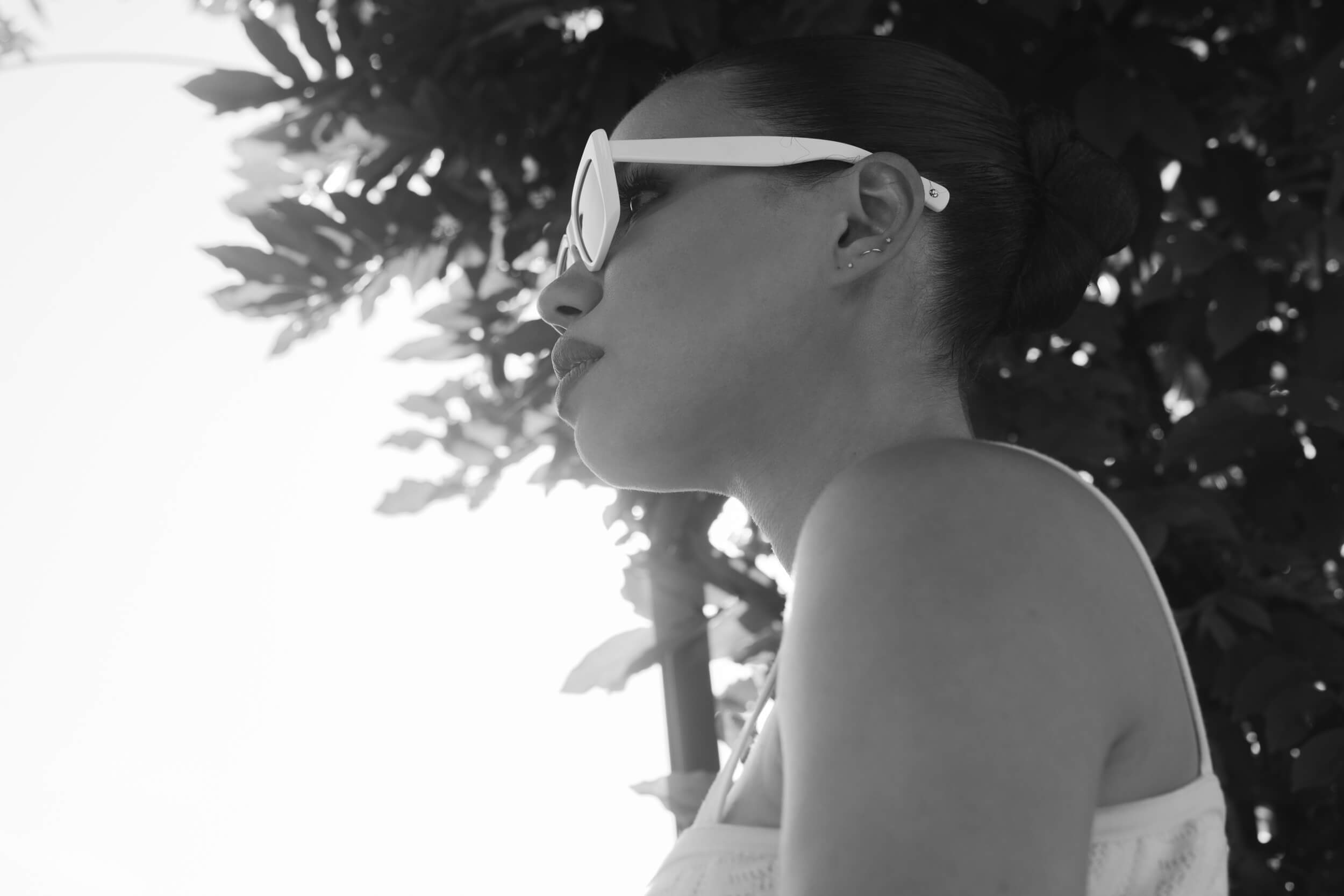
Your character, Joanne Carney, has a unique work and life relationship with Jude Law’s character, Terry, a man struggling with his physical limitations and past failures. How did you approach portraying this dynamic, especially with Joanne’s doubts about his ability to handle the case?
You know, I interviewed a lot of women who were former special agents, just to have a foundation and an understanding of the workplace. Then, I really layered on the details of the character and built a backstory and a biography of who she was.
Terry’s presence has been such an inspiration for her – he was her former mentor and yet now she’s raising her reins to a point of power that is actually superior to him, which is difficult for both of them to navigate, this new power structure. She’s also looking at Terry knowing that he’s mirroring her future, in a way, because he was once the vibrant, young, youthful agent who was not hindered by certain physical elements. What they have in common is that they have no life but the job [laughs]. Their job is their life, and is everything for both of them – Carney might be younger than him, but it’s where she’s headed as well.
It was improv when my character asked him if it was worth it, the sacrifices, but it really is Carney looking at him wondering whether or not this level of sacrifice that we give to the job is worth it. In interviewing the former special agents whom I interviewed, I found a common thread about how much the job takes over your life, how much devotion it takes to be good at this job, and the level of sacrifice and the demands that it takes not just on you and your mind, body and spirit, but also on everyone around you, on your family.
The cases become so personal that you’re taking the job home, as it’s not a switch that you can turn on and off.
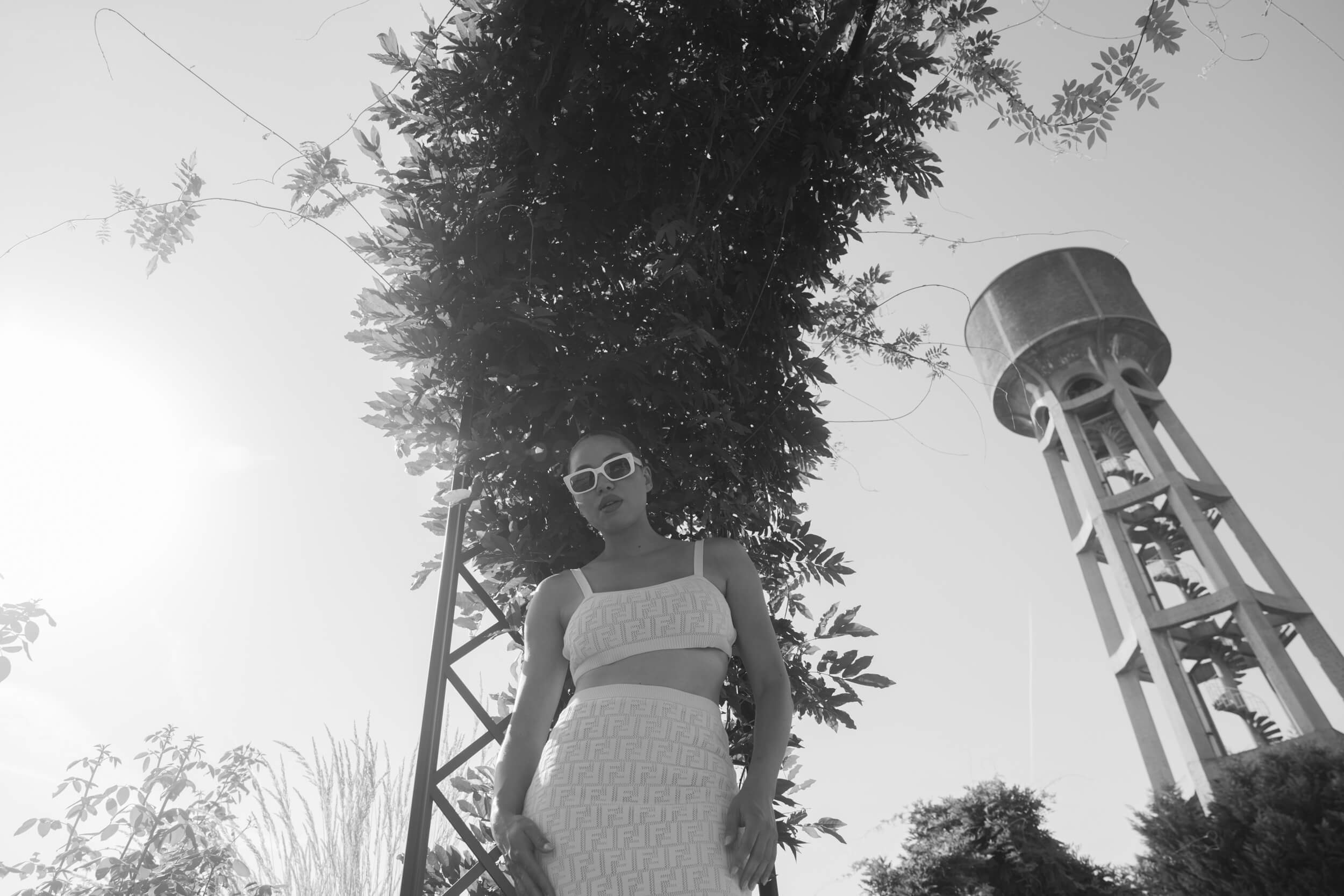
Throughout your career, you’ve played strong, dynamic female characters. How does Joanne differ from previous roles, and what excited you most about stepping into this character?
You know, it’s my first time playing an FBI agent, and it’s exciting. She’s on a hunt, oftentimes in the past, I cellared characters being hunted. With Leti [from “Lovecraft Country”], I played a character often being hunted by external dark forces which in turn required her to acces her inner courage out of survival. Playing someone like Carney who’s actively head-first running into the danger, and could choose another life entirely, hits a different part of your brain, to access that fearless mentality of “I know this situation is dangerous and I’m running straight into it” and not running away from danger, though both take courage, I think.
I’m drawn to characters who are willing to do things in spite of their fear, to tackle situations knowing that they’re afraid of them.
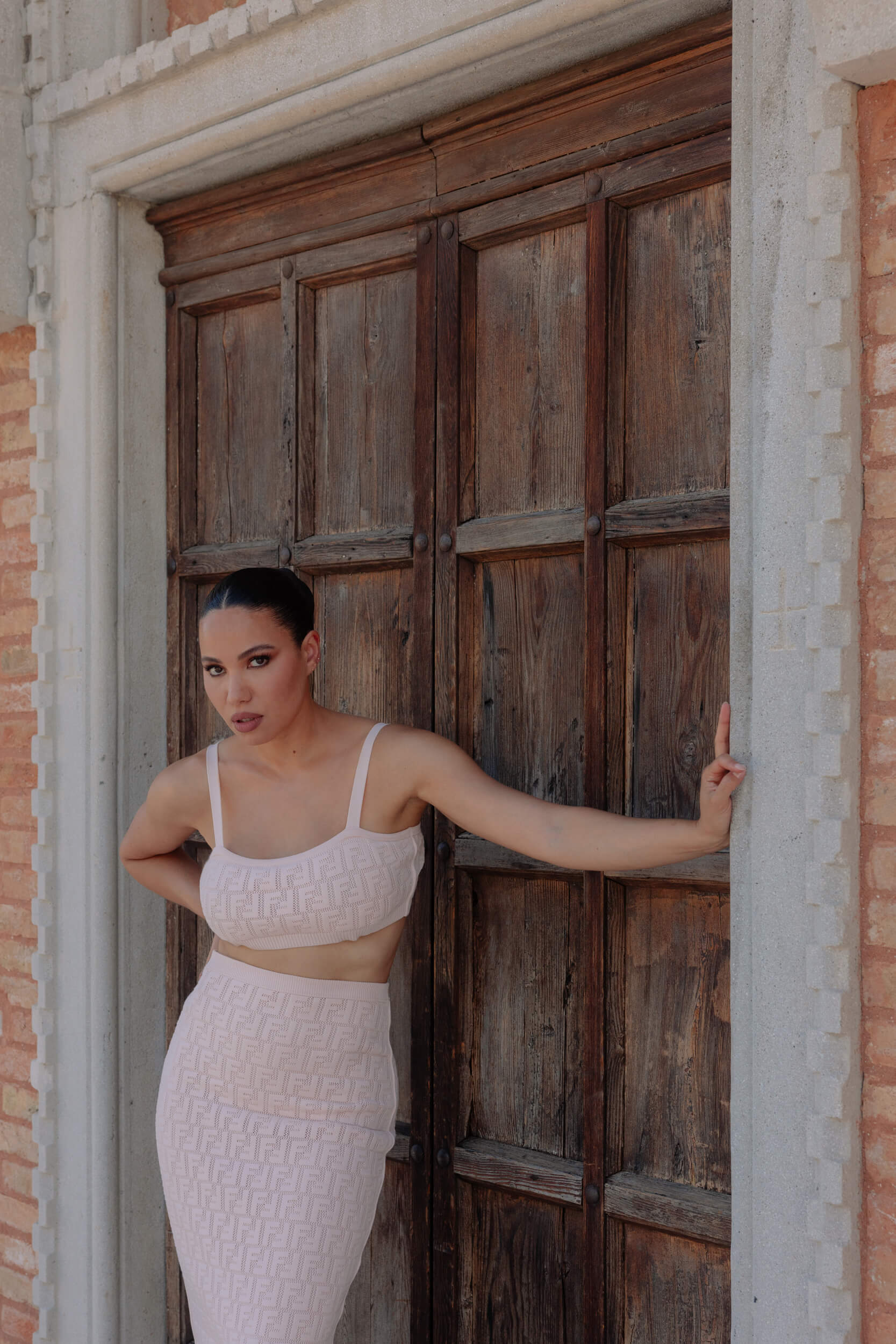
“I’m drawn to characters who are willing to do things in spite of their fear”
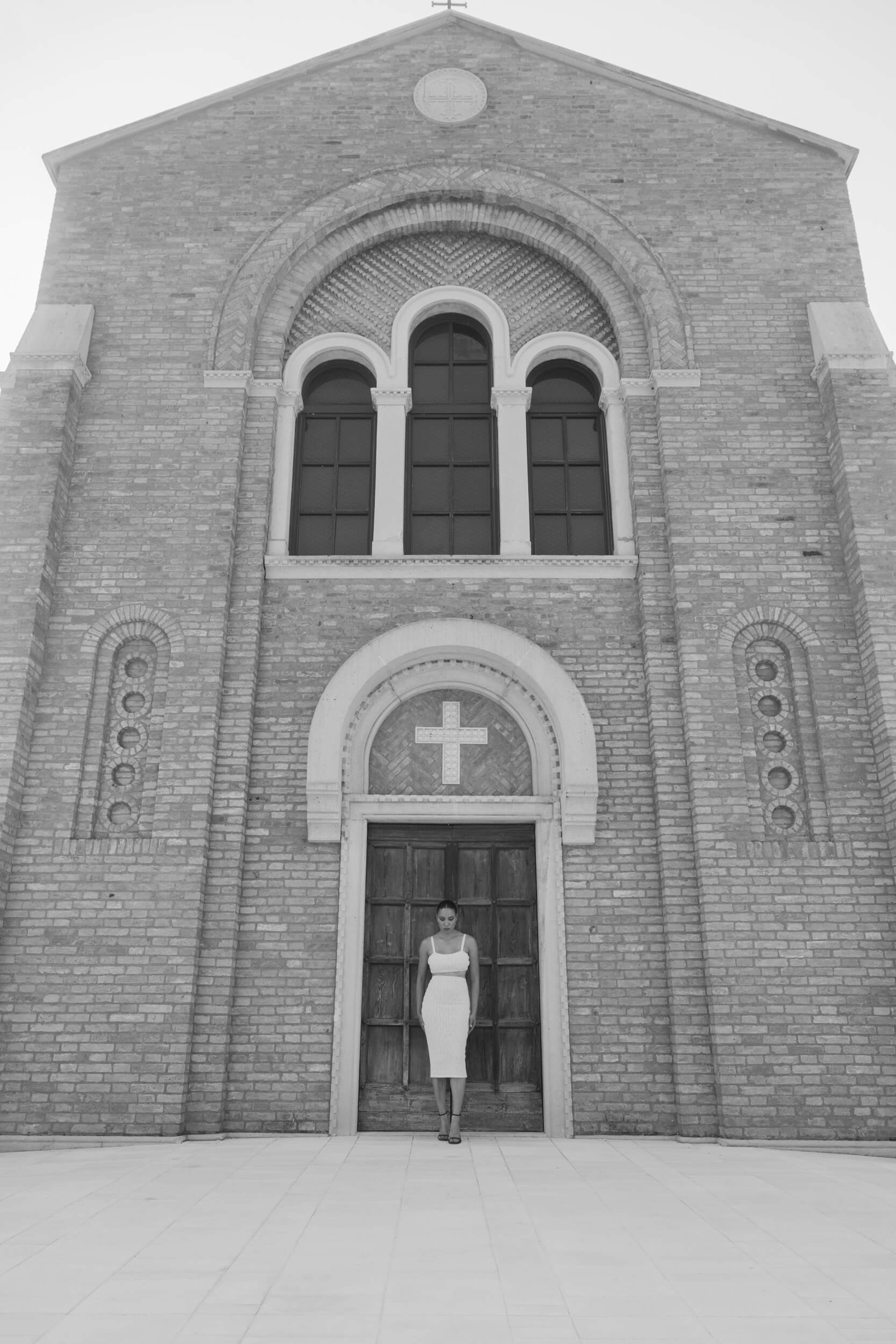
Given that “The Order” is based on real events, what kind of preparation or research did you do to better understand the time period and the danger represented by extremist groups in the 1980s?
I did a lot of different random things. I have my acting coaches whom I work with, but in terms of research, I read a lot of books around these topics, a lot of interviews about Bob Matthews, watched documentaries about him, and things on YouTube about The Order. There are a lot of disturbing images and news programs about them, and seeing them placing guns in the hands of children made me realize how this ideology seeped into people in such an early and vulnerable state. I read this book written by a former special agent about all the ways that Hollywood gets it wrong when portraying the FBI. So, after reading that I thought, “Okay, I’ve got to avoid all these clichés!” [laughs].
I just asked as many questions as I could about physicality, whether they wore makeup or not, and how they did their hair. I came away with the perspective that the job is everything to Carney and she’s not vain, she doesn’t have time for vanities. In fact, one of the mandates from Justin [Kurzel] was that I wore no makeup, and it’s funny because on our first day at work, the makeup artist put a lot of sunscreen and concealer on me, and then I came on set and Justin said, “Take it all off”. We got away with using a little tinted moisturizer without telling him. Once in awhile they would throw some bronzer on my cheeks [laughs]. But honestly it was incredibly freeing to mostly go without makeup and just be.
To not care how one looks while playing a character is the goal and is very freeing for an actor.
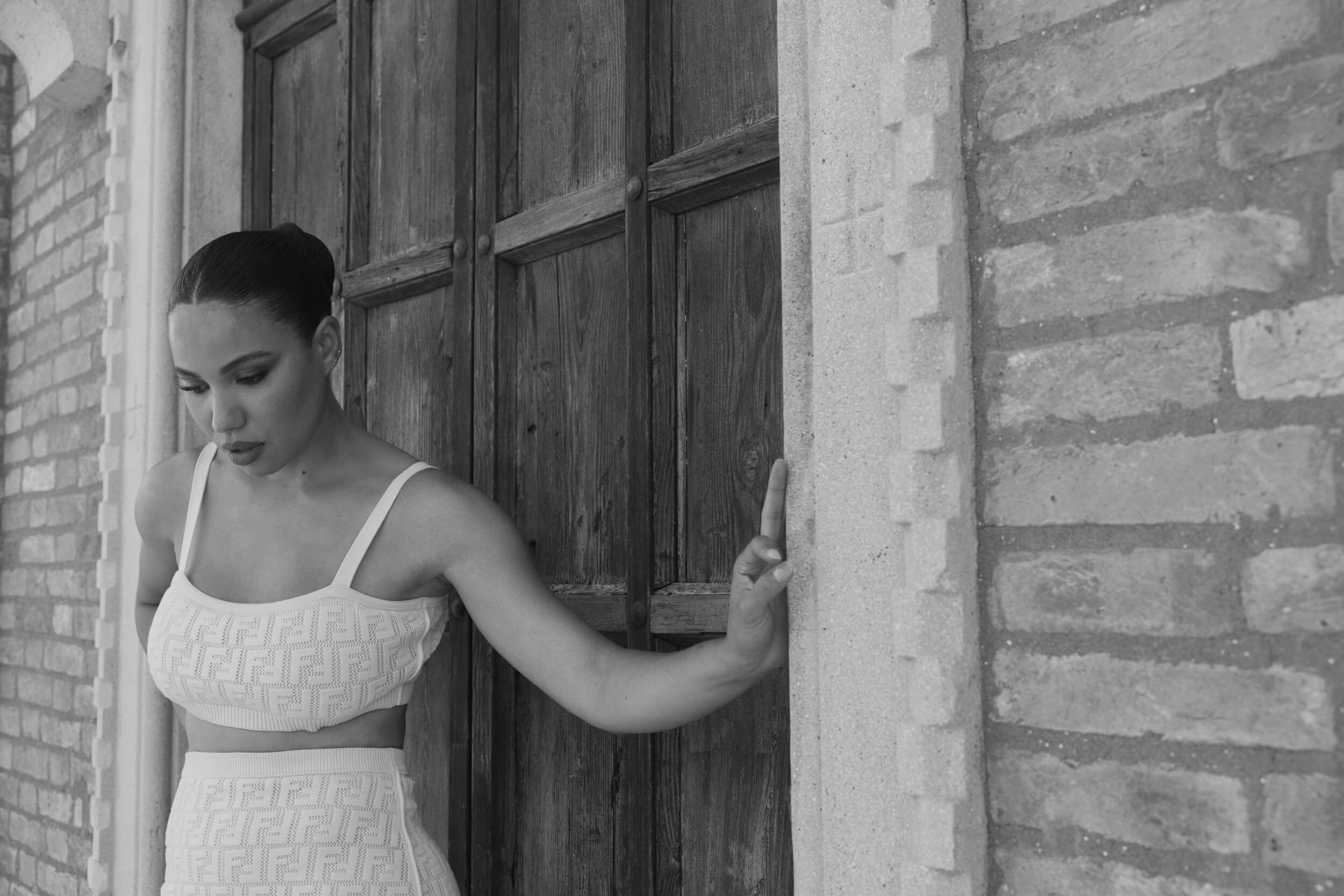
He’s actually known for his intense and raw filmmaking style, especially in films like “Nitram”. How was working with him on such a dark and emotionally intense story?
It was phenomenal, he’s one of my favorite filmmakers I’ve worked with. His approach to storytelling is so gentle and nuanced, he does not subscribe to any level of sentimentality or anything that feels false or cliché. His radar for dishonesty is so high – if it’s not truthful, we are not moving on. It’s so freeing to work with a filmmaker who wants you to try and improvise and discover on the day.
Every take felt different and unique: the scene with Carney and Terry at the bar, when they first meet up, we did it in so many different ways, and in between the takes before he said action, Justin turned Toto’s “Africa” on and had Jude [Law] and I slow dance. He wanted to remind us of the interpersonal connection and relationship that exists underneath the conversation about the case. The history of these two people is so much deeper than the words about the case, and I think that’s why the film feels like you’re watching real people and not like a procedural.
Even though we’re doing casework, you feel the relationship, the humanity, the mistakes underneath all of those words.
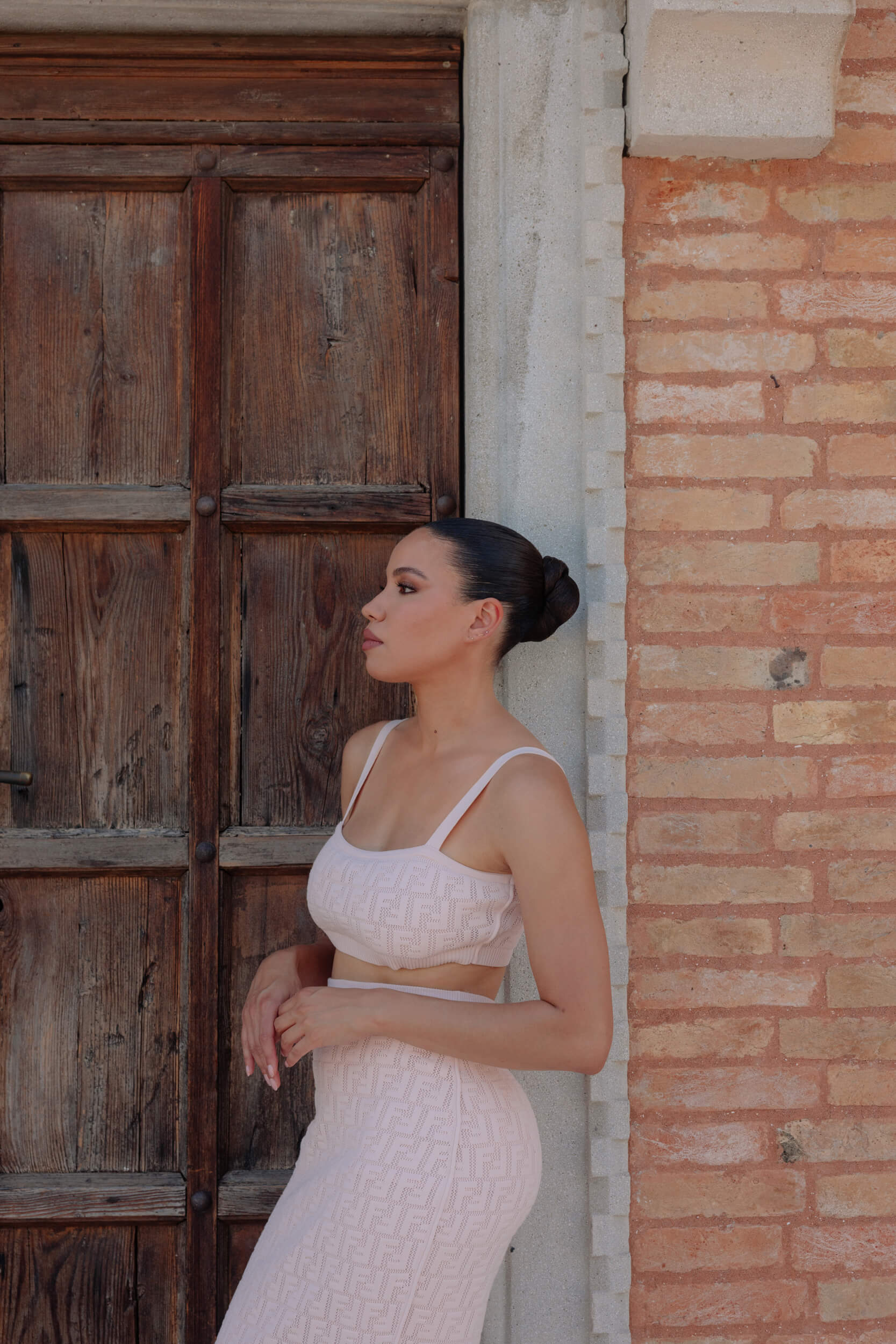
And what do you hope audiences take away from the film, particularly in light of current events? And what did you take away from it?
As an artist, I feel incredibly privileged to be able to collaborate with artists like this group and to be able to tell an essential story. I believe in what Nina Simone says, that it’s an artist’s job to reflect the times, and so I think it’s a great privilege that we, as artists, are able to hold a mirror up to society and stimulate a conversation afterward. I think this level of domestic terrorism is homegrown, and as a nation but also as a society, globally speaking, we have to ask ourselves what are we doing as a world that’s allowing this level of bigotry and hatred to still thrive and go unchecked?
What can we do better?
I think this film is a genre, a crime thriller, it’s entertainment, and it’s going to take you on a ride, but it’s also really demanding that we ask ourselves some really uncomfortable questions. To me, as an artist, those are the most exciting films because I do love genre and films that take us on a ride, but I also love films that challenge us, make us uncomfortable, and force us to look at the ugly sides of humanity and wrestle with that.
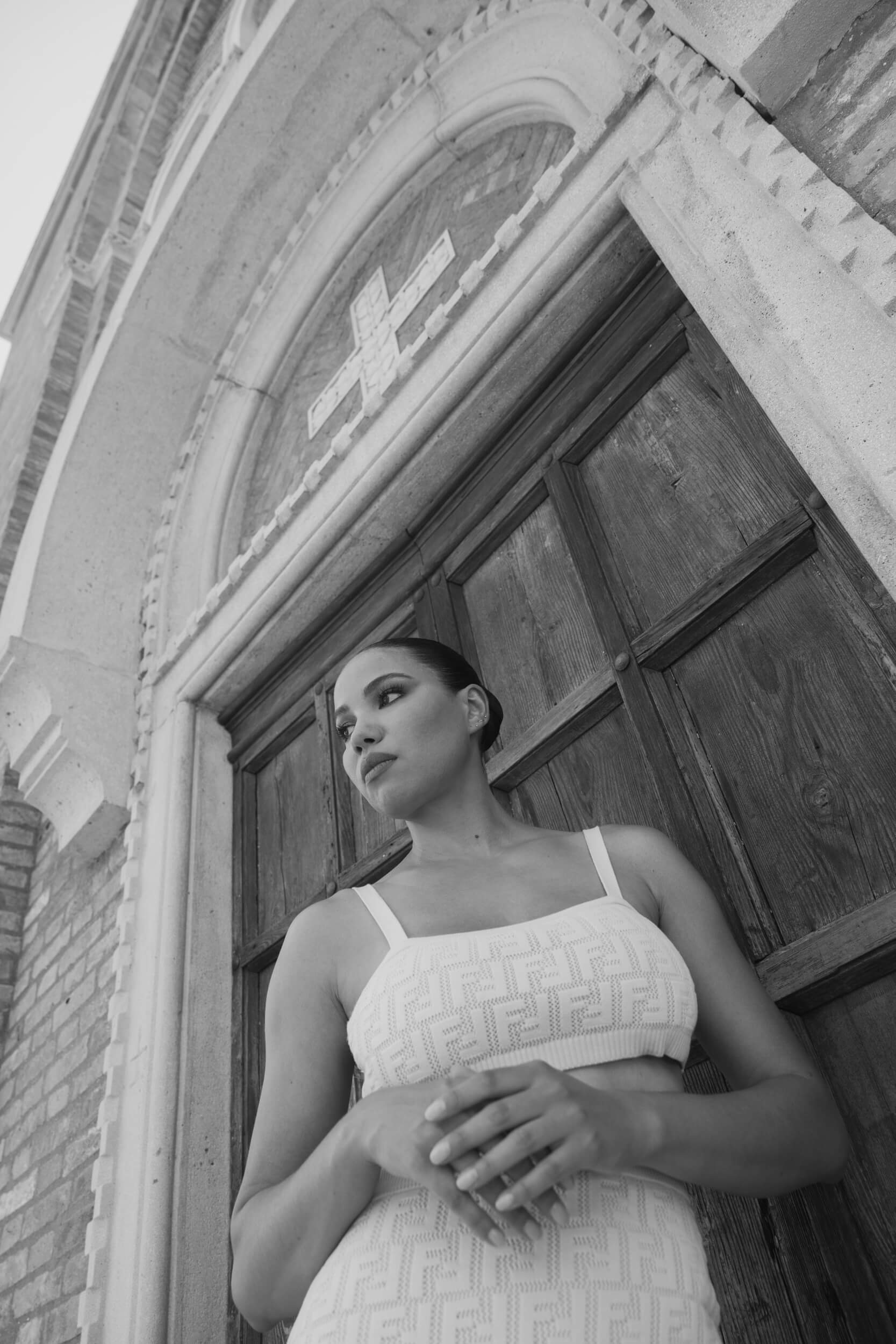
“it’s an artist’s job to reflect the times”
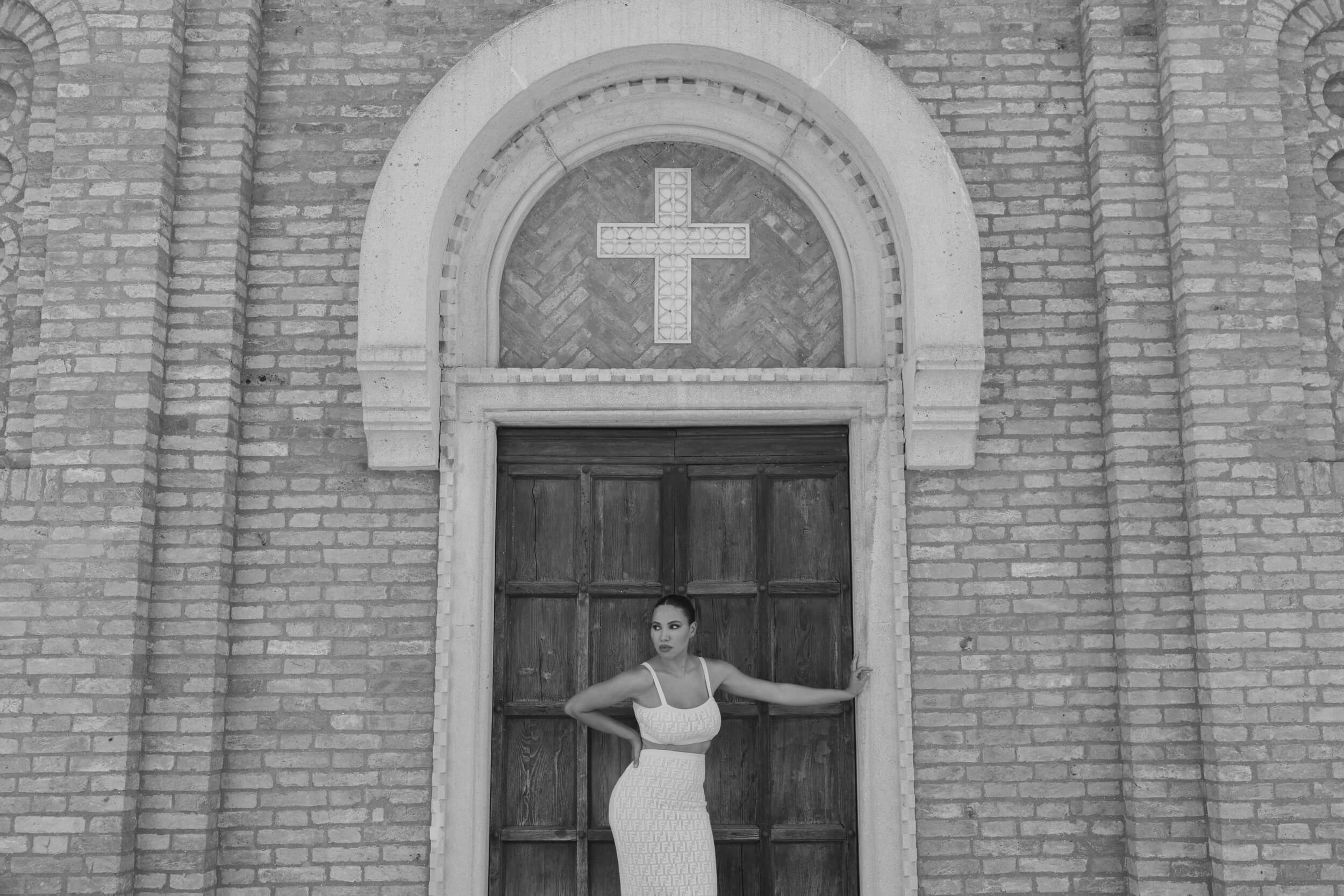
The world of cinema and art in general are linked under several aspects to the world of mental health. Is there anything you keep witnessing that bothers you or that you would like to change?
Where do I begin? It’s a great question you asked about mental health.
I think it’s partly what we’re exploring as artists and the inner turmoil that we all have. Mental health exists on a spectrum though, some of us struggle more over something and someone else over something else, but I think cinema can help us feel less alone with our mental health struggles. I think there’s a need for us to address this level of masculine toxicity, and I don’t mean that in terms of men because, regardless of gender, anyone can embody that level of toxicity.
I don’t think masculinity or femininity is about gender, but they’re about energies.
So, when we talk about leadership, we’re talking about assessing what world we’re living in and how we’re leading – are we leading with more of a nurturing, caring, loving energy or are we leading with energy to dominate each other, rule each other? These are all great questions that cinema helps us explore.
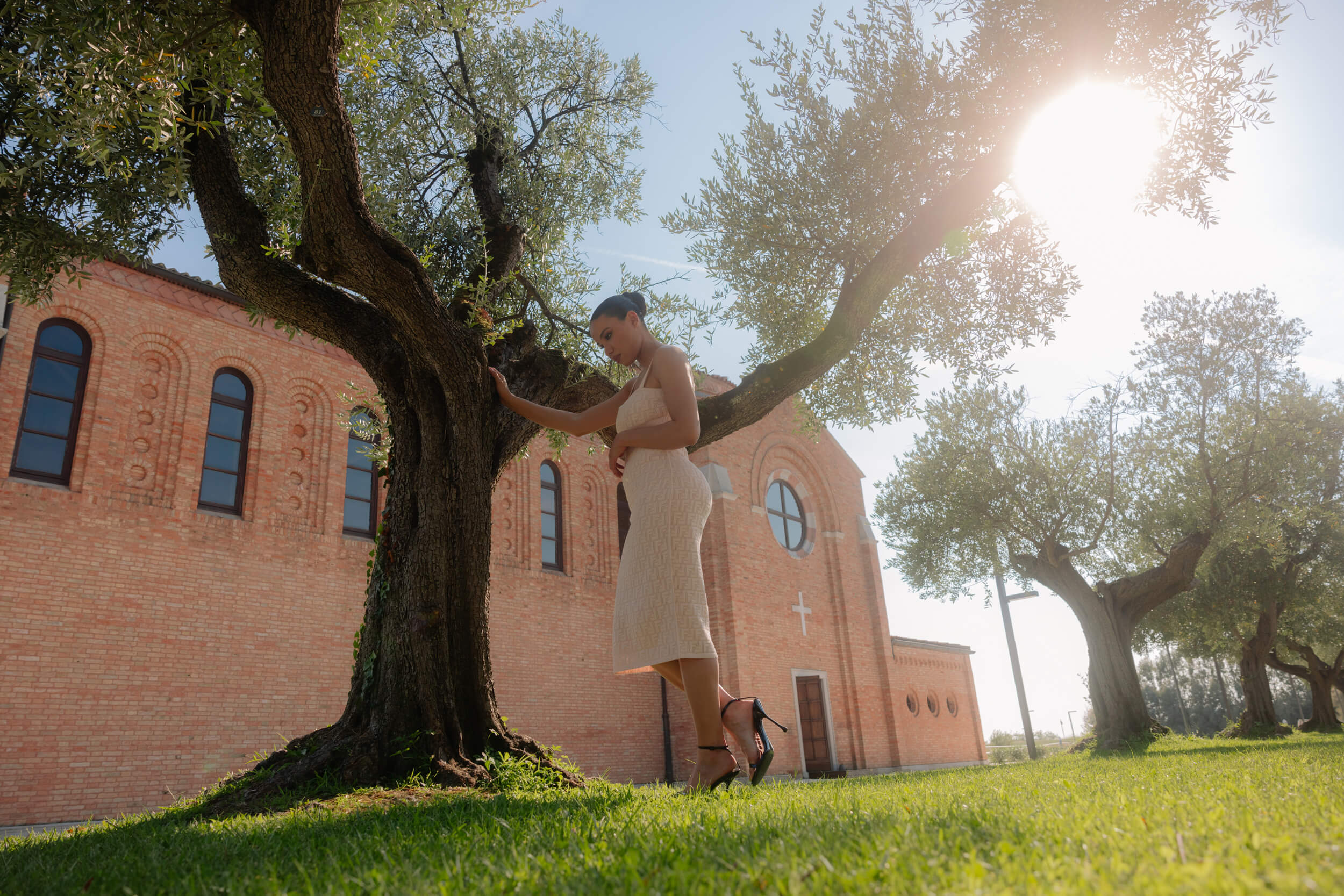
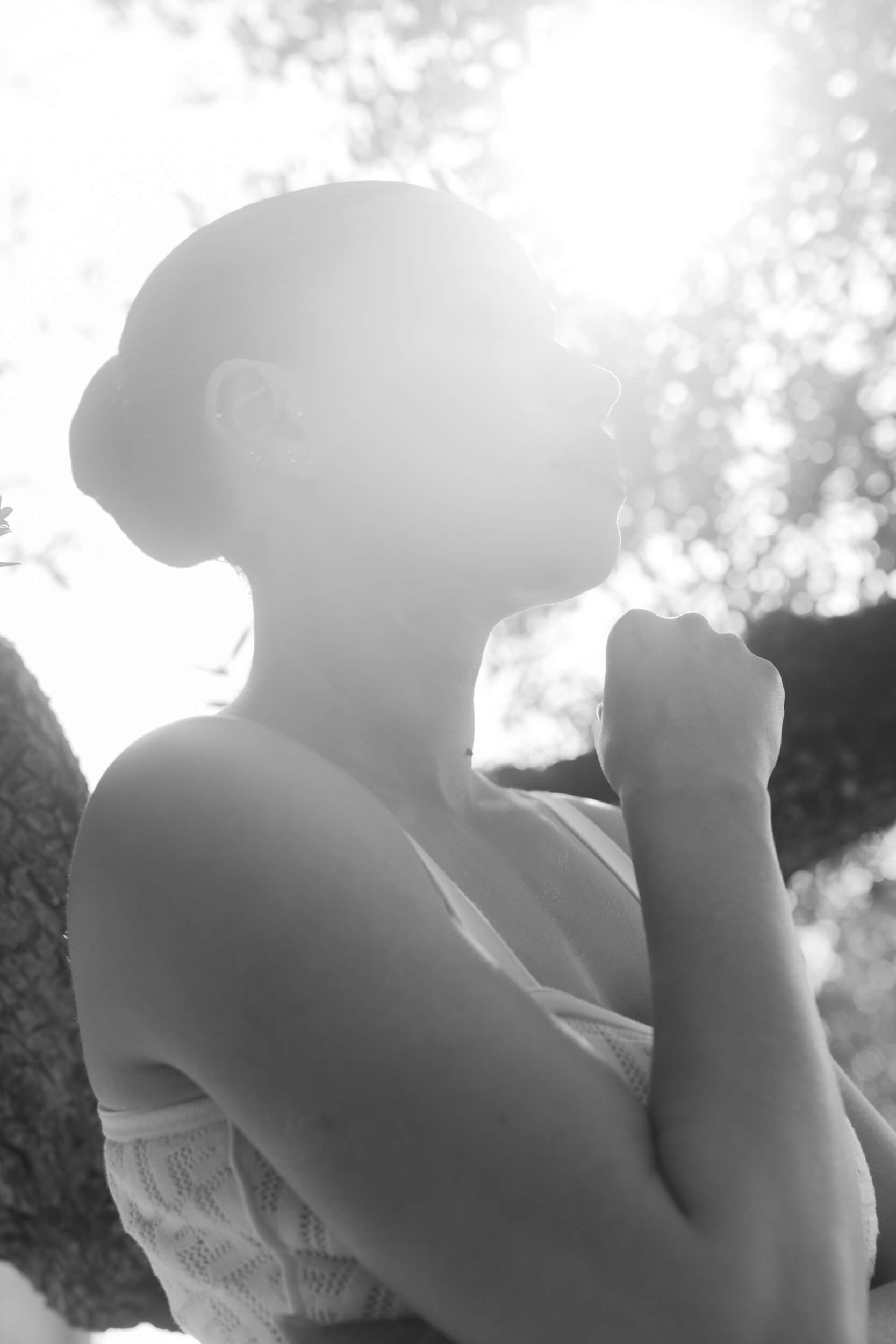
Generally speaking, what makes you say yes to a new project?
I’m willing to take a risk on a few specific conditions: if the filmmaker and the script are great, I’m willing to take a risk, as well as if the cast is as exciting; I’m willing to take a risk if the filmmaker’s new but the script is strong; it’s got to be certain elements that excite me. I honestly don’t have hard-and-fast rules, but if it’s something that I feel that I’ve never done, if it’s a filmmaker that I’m challenged by and excited to work with, if it’s a cast that I’m a fan of, then I’m in. Most importantly, anyway, the character has to speak to me and challenge me, and it has to make me feel that I could almost exercise something in me. Those are the ways that I’m selecting roles, I want the challenge.
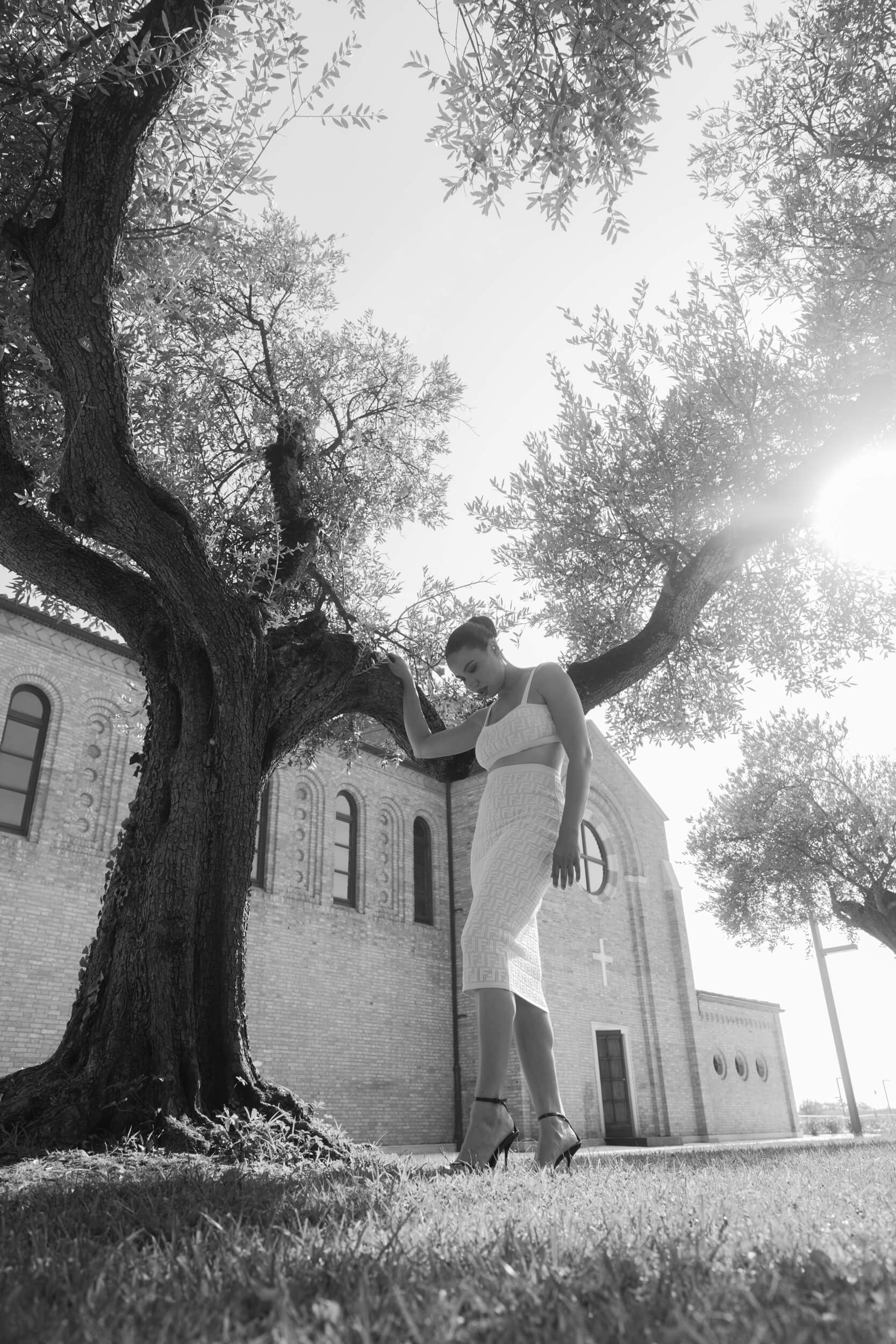
“I want the challenge”
Do you usually tend to be more instinctive or rational when preparing and playing a new character?
Instinctive.
There’s a lot of invisible work that’s done off-camera that you hope becomes invisible by the time you get on camera. You know, we’re literally lending our spirit to another spirit.
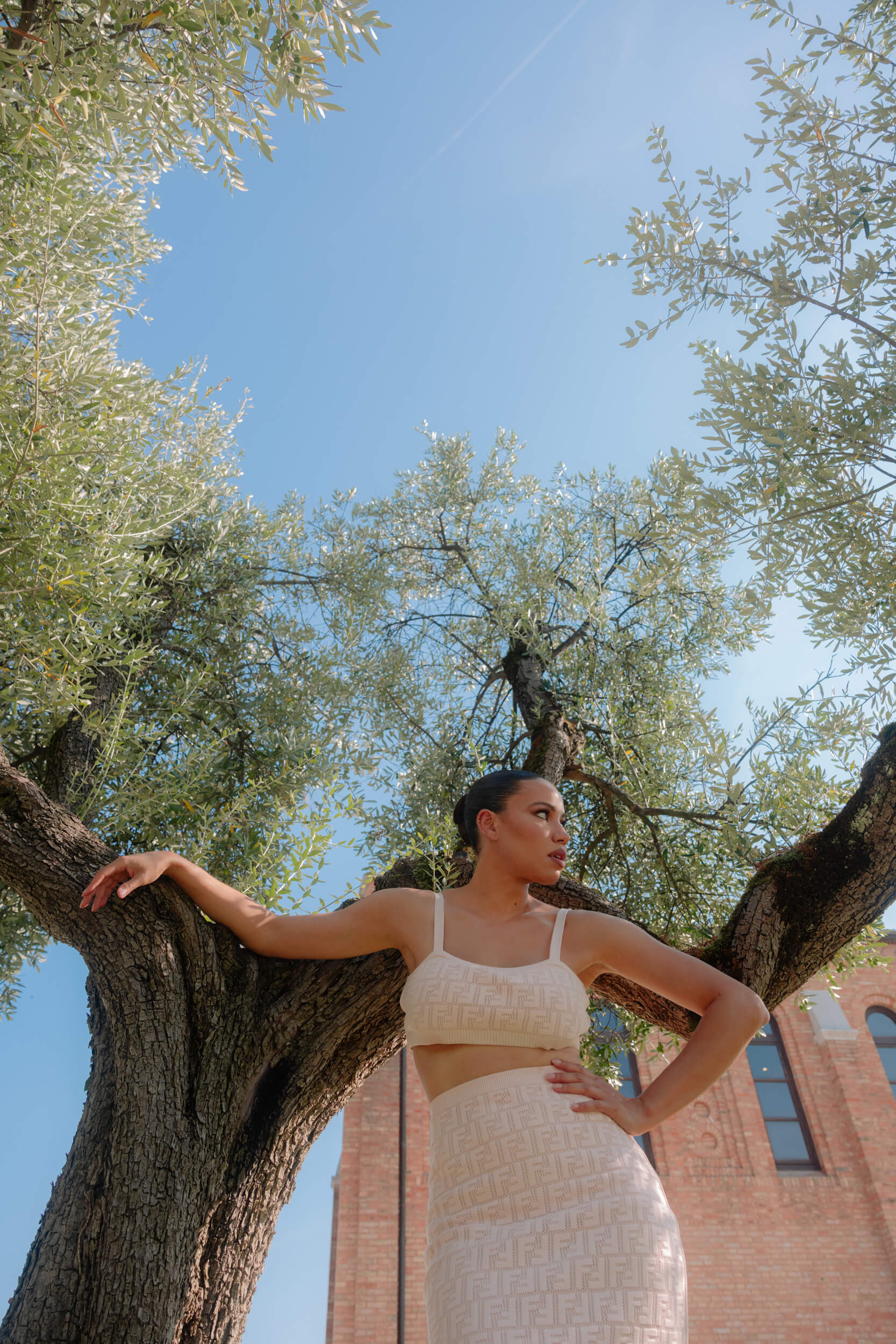
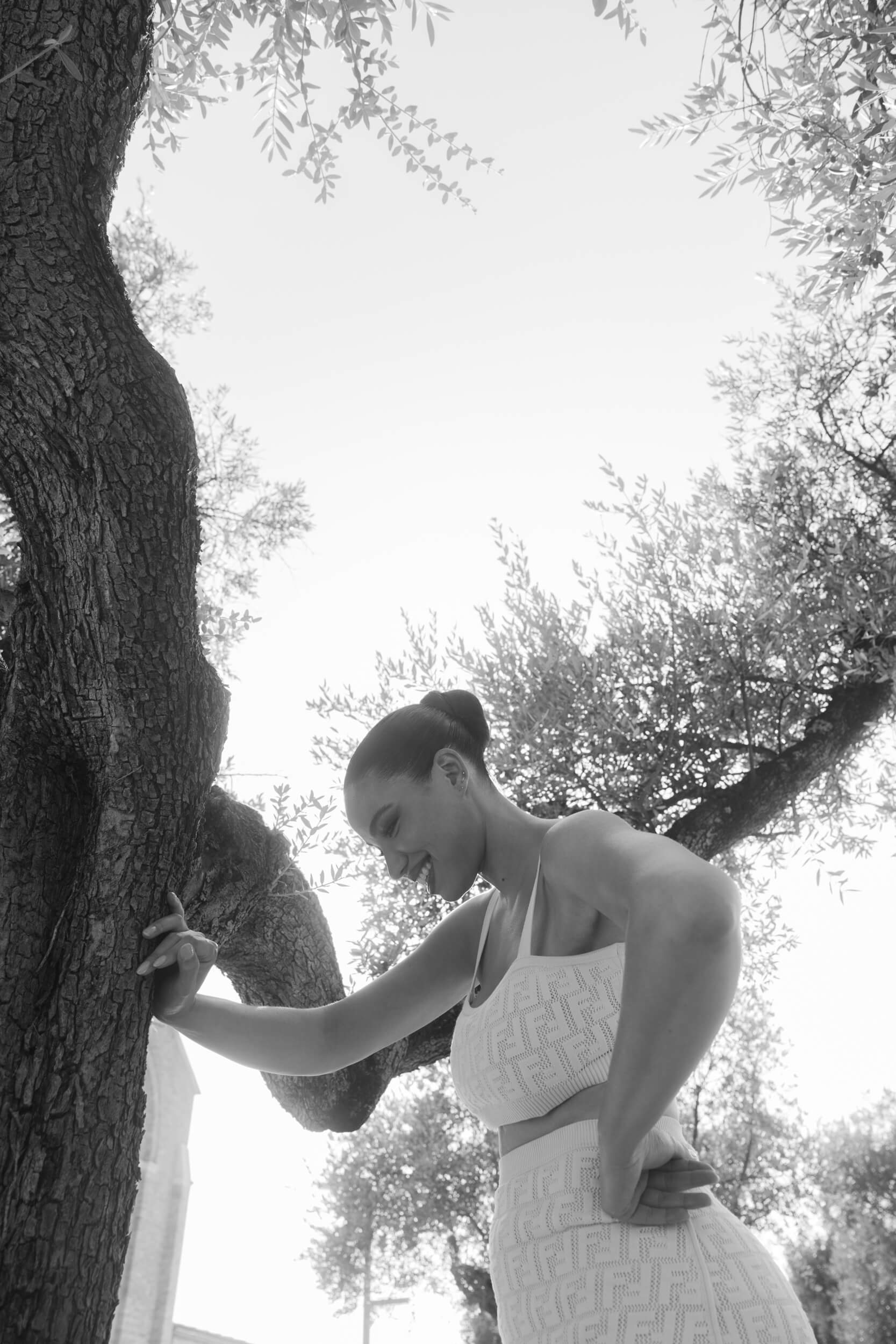
Playing different characters from time to time, you end up spending a lot of time with yourself, exploring your many sides, testing and getting to know yourself more and more. What’s the latest thing you’ve learned about yourself through your job?
I just finished doing an Apple TV show that Dennis Lehane created, it comes out next year, with an amazing cast I got to play with: Taron Egerton, John Leguizamo, Greg Kinnear, Anna Chlumsky. Dennis’ writing is out-of-this-world exceptional.
I learned so much about myself in this process – my character deals with some trauma in her past with her parental figures, and I learned that there’s a lot of healing that I still have to do in my relationship with my father, who passed away a few years ago. It was wildly healing to be able to understand that he did the best he could with what he had; I learned that there were some things I was still holding on to about him.
I’m pursuing art for very selfish reasons, it’s cathartic for me.
I think it’s a matter of fact that art can be healing.
Amen, and you hope that through your own healing, you can help heal the world. I hope that through my art being cathartic for me it can be cathartic and healing for the folks who go on the ride with me.
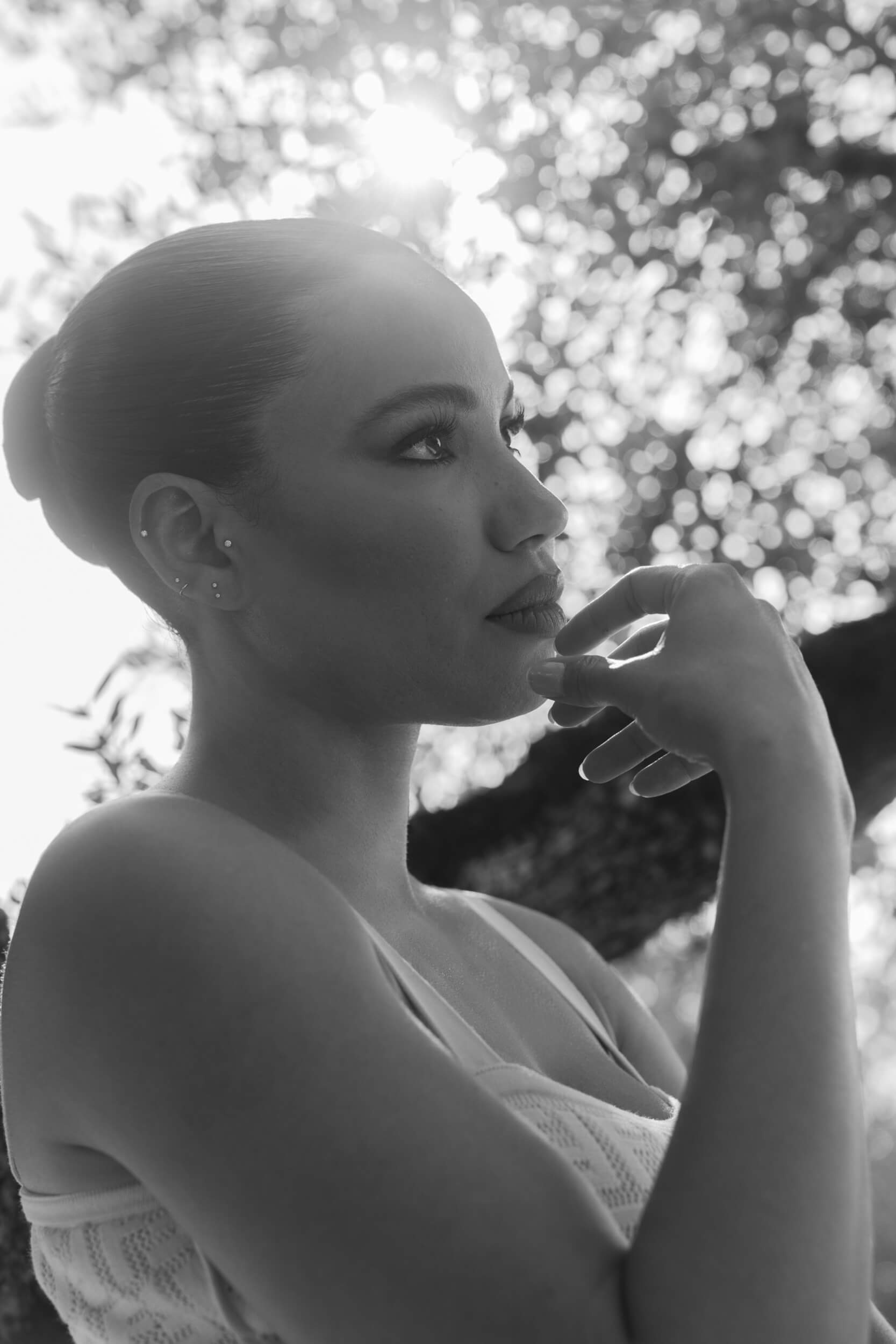
When do you feel the safest? And when do you feel the most self-confident?
I feel the most self-confident when I’ve tackled the things that I was most afraid to do.
On the other hand, I don’t know that I seek safety in my art, I actually seek the opposite, I seek danger. And it’s something that has to be reeled in constantly by the people around me, I think. One of the things Misha Green – who created “Lovecraft Country” – is always doing is that when I’m doing stunts, she’s always on set going, “No, you can’t do that, we have to have the stuntwoman do that!” because I’m always seeking the edge.
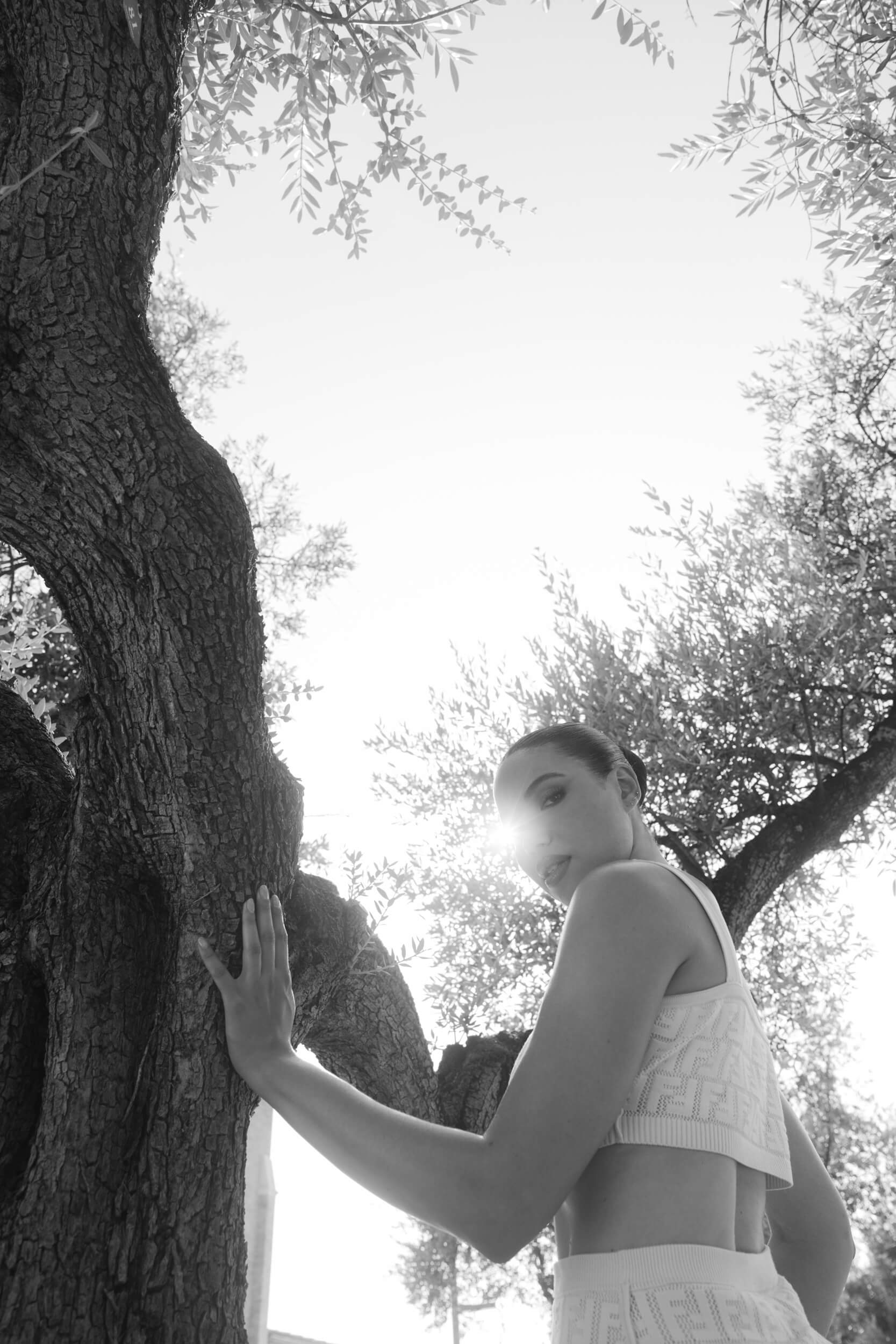
“I don’t know that I seek safety in my art, I actually seek the opposite, I seek danger.”
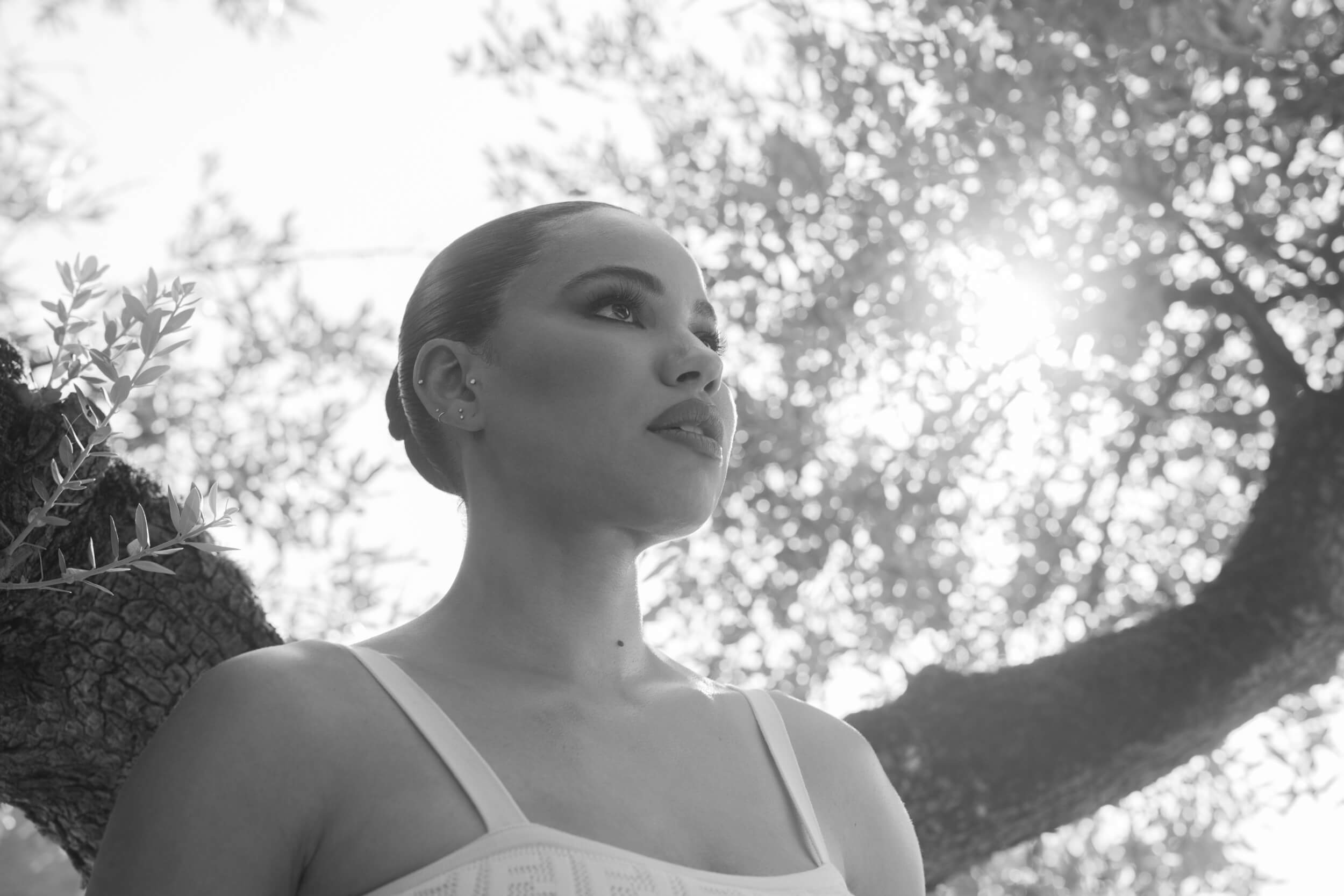
You’re very brave! On that note, what’s your greatest act of rebellion been so far?
Thinking about the last project I’ve done, because I’ve just wrapped it so it’s so fresh, my greatest act of rebellion has been playing a character that does things that I would never do, and not judging her for doing it. She does some really morally questionable things, and I pride myself on being high-valued and holding on to certain morals, so it was a very interesting thing to step into a character whose morals are a bit questionable.
And what’s your biggest fear?
To not reach my potential in life. Passing away before I’ve reached my full potential and explored my craft to its full extent. I want to be thoroughly worn out when it’s time for me to go.
Among the many ways in which we can classify people, there are nocturnal animals and early birds. Which one are you? And what’s your favorite time of the night or day?
I’m so nocturnal that I like watching the sun come up! [laughs]
It’s switched also since I’ve become a mom: I used to go to bed early and wake up early before, but it’s the opposite now. Actually, I still have to wake up early because I have to take my kid to school, but, you know, what do they call the after-hours when you’ve just put your child to bed and you’re in your bed reading, or scrolling your phone or catching up your emails? Is it your “revenge hours”? [laughs] That’s me now, up all night and then regretting it because I still have to wake up early in the morning.
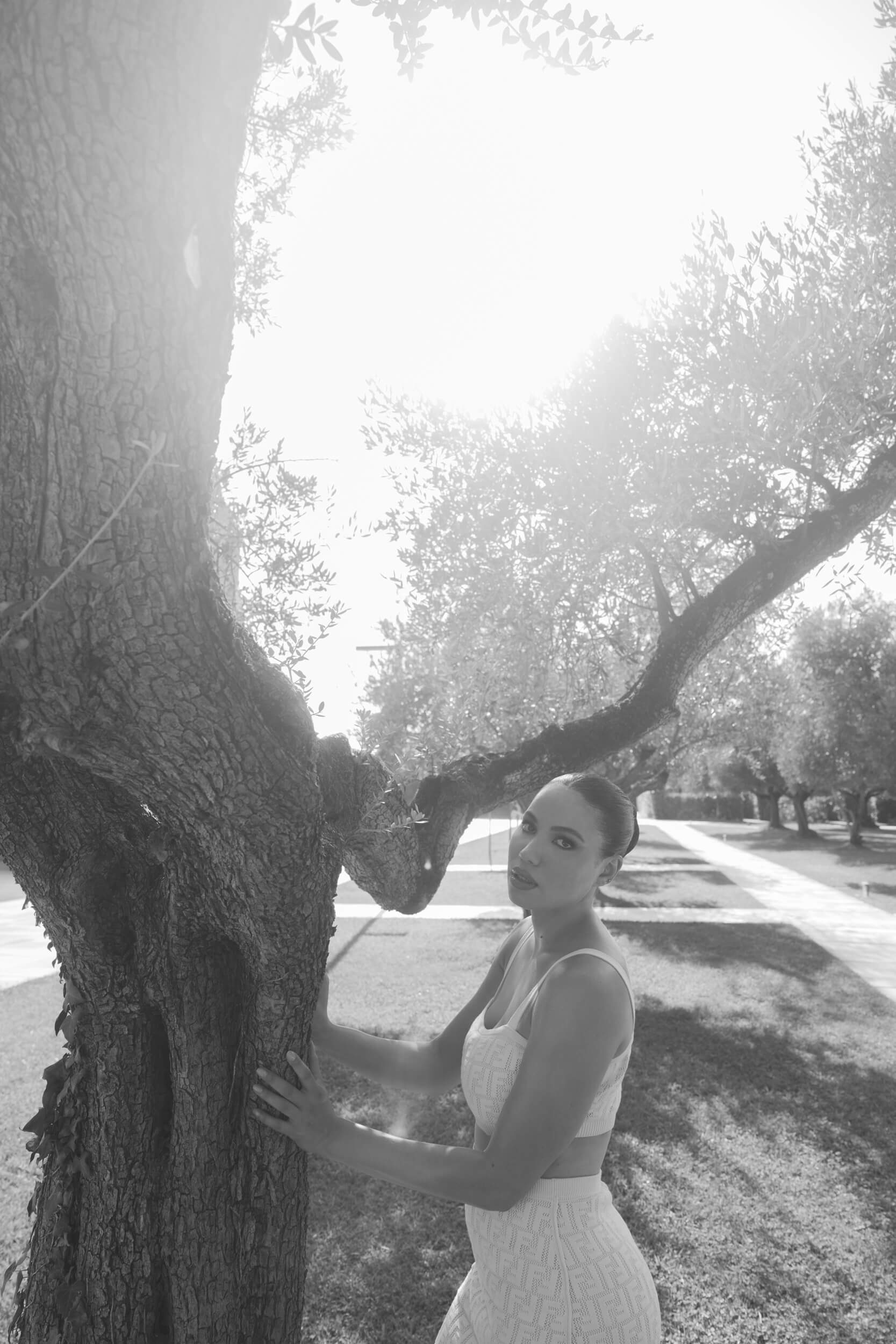
And what does it mean to you to feel comfortable in your skin?
It’s a really good question that I’m still trying to master, to be honest. It’s fleeting from me, there are moments when I feel very comfortable in my own skin and moments when I battle that sensor in my head – Julia Cameron, “The Artist’s Way” author, talks about that sensor that fills you up with self-doubt.
I’m a work in progress and I’m aware of that.
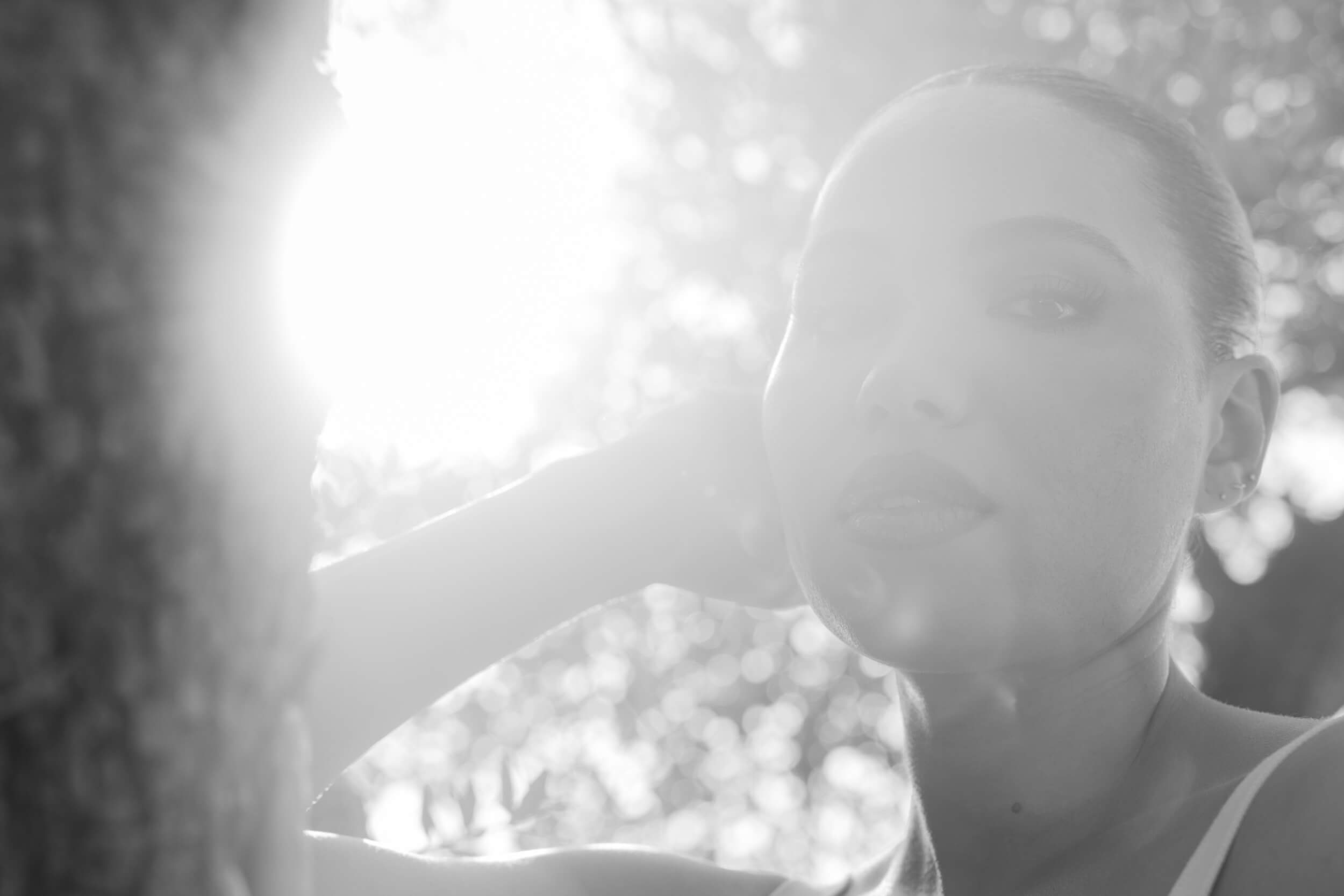
Photos by Johnny Carrano.
Makeup by Chynara Kojoeva.
Hair by Luke Pluckrose.
Styling by Jamie Mizrahi.

